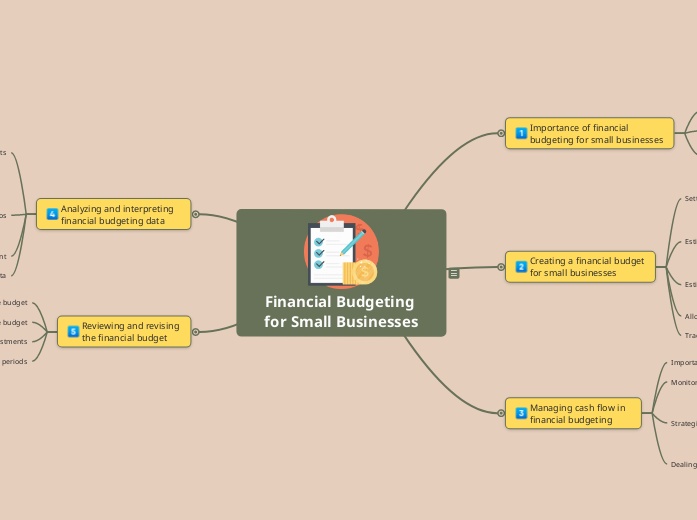Financial Budgeting for Small Businesses
Importance of financial budgeting for small businesses
Overview of financial budgeting
Benefits of financial budgeting for small businesses
Challenges of financial budgeting for small businesses
Creating a financial budget for small businesses
Setting financial goals
Short-term goals
Long-term goals
Estimating revenues
Sales forecast
Other sources of revenue
Estimating expenses
Fixed expenses
Variable expenses
Allocating funds for contingencies
Tracking and adjusting the budget
Managing cash flow in financial budgeting
Importance of cash flow management
Monitoring cash inflows and outflows
Strategies for improving cash flow
Reducing expenses
Increasing sales
Negotiating better terms with suppliers
Dealing with cash flow gaps
Analyzing and interpreting financial budgeting data
Understanding financial statements
Income statement
Balance sheet
Cash flow statement
Key financial ratios
Profit margin
Return on investment
Current ratio
Identifying areas of improvement
Making informed financial decisions based on data
Reviewing and revising the financial budget
Regularly reviewing the budget
Identifying deviations from the budget
Making necessary adjustments
Revising the budget for future periods
